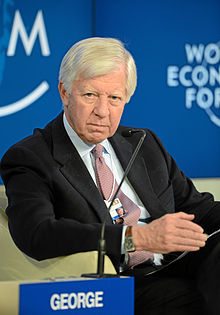10 Reasons Why People Who Read a Lot Are More Likely To Be Good Leaders
Reading is currently on a global decline. The statistics and polls behind this pattern are frightening because the shortage of readers means there will be a shortage of leaders. There is no disputing it: reading offers you the platform to become a leader. Famous leaders from Steve Jobs to Elon Musk engage in a lot of intellect-building by reading books. This is what reading offers when it comes to leadership.
1. They have better people skills. According to researchers, reading encourages our brains to try to relate with the characters we are reading about. Even if we go several days without coming back to the book, our brain continues to make neural connections with the experiences and behaviors of these characters. By connecting with several characters of a book, we boost our emotional IQ and become more able to connect with people. These kinds of skills are important for leadership as they help us communicate with our associates.
2. They have a wider vocabulary. People who read expand their vocabularies from exclusively verbal to emotional as well. By reading more, one is exposed to a wider span of vocabulary. With an improved vocabulary, a person can have better communication skills which are helpful in expressing desires and thoughts. You can make demands and seek answers as you navigate your path to leadership.
3. They have a more rounded perspective. Instead of viewing the world from a preferential angle, they see it from a holistic one. With reading you are able to travel to new places, engage in many conversations, and be a part of many plots. Having a more rounded perspective doesn’t make you limited to a particular scope or leave you fixated on one piece of reality; rather, you see the world as a terrain of limitless possibilities and challenges.
4. They have better associations. People like to connect and interact with readers because of their ability to converse with an array of word choices. They are more discerning and prove to be more knowledgeable in conversations. Networking and connecting with other people who are similar to them on such ideals sort of triggers and propels them toward leadership.
5. They are more relaxed. According to a study, reading can help to reduce stress. Compared to other stress relievers like walking, listening to music or drinking a cup of tea, reading was discovered to be the most effective as it lowers heart rates and can relieve tension in few minutes. With a calmer demeanor, readers are more positive and focused for leadership.
6. They are more intellectually challenged. Readers are better thinkers according to research. This is because reading builds your intellectual capacity to reason and solve problems. It is also noted that reading something you disagree with could have a big impact on the way you think, both logically and creatively.
7. They are reminded of past actions. Sometimes, reading serves as a mirror to who you are. Reading certain books could remind you of things that you knew before. Reading filters your thoughts and awareness and keeps important concepts at the top of your mind.
8. They are more energetic and purpose driven. Reading makes you feel more energetic, positive, and confident. Readers are better vitalized and aware enough to navigate through different channels for success. Reading positions them to be mentally sharp and active.
9. They have an improved focus. Because of reading constantly, people who read are able to sustain their focus on a long-term project. Avid readers hate distractions and dislike it when they have to put a book down. This is also an important element for any leader.
10. They are good time managers. Reading is always available for any reader. Instead of waiting and being idle, reading is always a valuable avenue to manage their time and get more done. Any minute wasted could be put to good use in reading a book. Such awareness is also prevalent in leaders as they see every minute as vital to meeting their goals.
For more articles like this, visit Lifehack.







